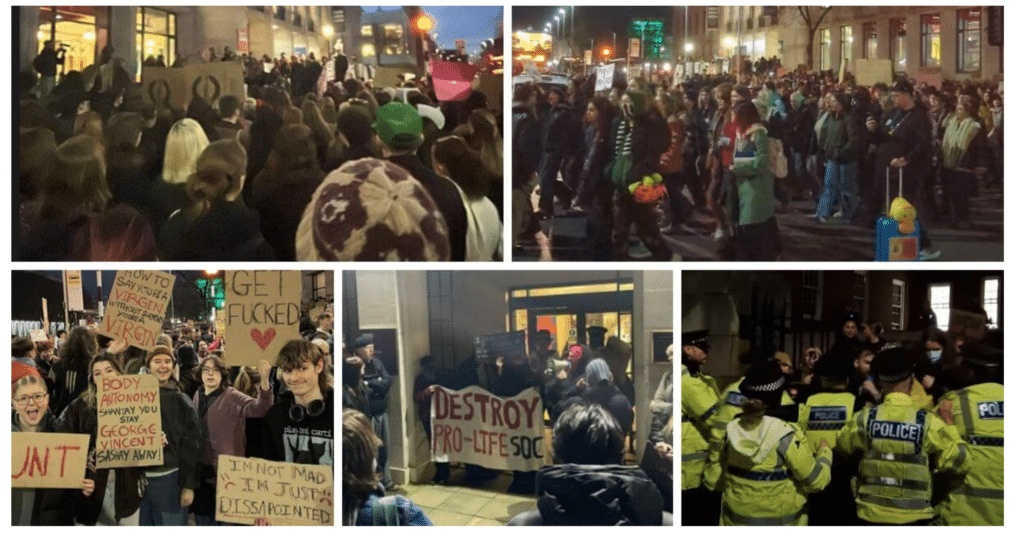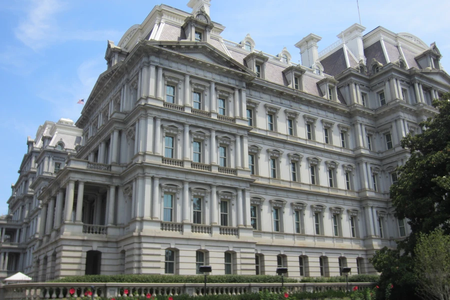Ugly scenes at Manchester University embody how abortion in UK holds up a mirror to society
Students attending the University of Manchester Pro-Life Society’s inaugural gathering earlier this month were spat at, threatened with rape and barricaded into a venue by a screeching mob. The mob was predominately made up of their young, fellow students – part of the future of this country. As both a writer and a reader, I The post Ugly scenes at Manchester University embody how abortion in UK holds up a mirror to society appeared first on Catholic Herald.

Students attending the University of Manchester Pro-Life Society’s inaugural gathering earlier this month were spat at, threatened with rape and barricaded into a venue by a screeching mob. The mob was predominately made up of their young, fellow students – part of the future of this country.
As both a writer and a reader, I long ago tired of countless column inches lamenting “attacks on free speech” from the “Loony Left”. Such outlooks tend to regard almost all such issues as stemming from a vague “Woke” Leviathan, which they imagine to have magically spawned as a hysterical reaction to the likes of Brexit and Donald Trump.
This genre of progressive militarism, which we witnessed flexing its muscles at Manchester University, did not emerge from nowhere. The scenes at Manchester are the result of long-standing cultural trends, exacerbated by the deliberate policy decisions of successive governments.
Such activists, whether on university campuses or in the professions and national institutions, are emboldened to be aggressive and threatening to unfashionable opinions because they know they will face no social or legal repercussions for doing so.
The Home Office’s Prevent initiative defines pro-lifers as an extreme ideology just as likely to lead to terrorism as Islamism, Fascism or Communism. It increasingly appears that “extremism”, while a useful short-hand for certain beliefs, is entirely contingent on who is drafting the definition.
I lament the current hysteria toward unfashionable opinions: what is happening could also be seen as society restoring itself to its lapsed factory settings. The view of humans as equal, thinking beings capable of discovering the laws of an ordered universe is rooted in the Bible and goes back as far. Anything that rejects this vision of humanity is bound to result in a crude, Hobbesian free-for-all.
It’s notable that the mobbed and threatened student group at Manchester are not solely interested in campaigning on abortion, but are also against euthanasia and the death penalty, along with helping alleviate the sorts of socio-economic injustices that may push female students and others towards decisions they would otherwise not make.
A recent survey found that six in ten British women who underwent an abortion cited childcare costs as a motivation.
“It is hard to fully account for the loss and disappointment, the sense of stuckness, among many [British] people in their 20s and 30s,” Sophie McBain laments in her New Statesman piece on the matter.
You don’t need to be pro-life to twig that something is seriously amiss in Britain. MPs are currently considering decriminalising abortion up to the point of birth, for any reason, even though the median time limit among our European neighbours is around 12 weeks and medical advancements mean babies can survive outside the womb from 22 weeks.
How is it that someone who questions or is sceptical about this state of affairs and the implicit risks to mothers and the unborn is, in the eyes of the State and some of the populace, irredeemably “extreme”, and thus worthy of legal action or verbal abuse?

Following the scenes at Manchester, I couldn’t help but notice the muted response of the apparent free-speech warrior set, compared to their incessant commentary on gender issues. If this sort of aggressive protest had taken place outside a gender-critical feminist event there would likely already be a dozen columns lined up in the Right-leaning press bemoaning the “fall of free speech”.
But because it’s a cause as unfashionable as the pro-life one that is being attacked, outrage was the exception, rather than the rule. It brings to mind the astute observation by Mail on Sunday columnist Peter Hitchens: “How are these causes chosen?” (Ed: Perhaps a country in freefall away from religion might have something to do with it…)
It also appears that gender-critical opinions, unlike pro-life ones, are not seen as being inherently linked to Christianity, and are thus perceived as having a higher status for the focus of rebellion by the British Right.
While the pseudo-Voltaire adage of “I disapprove of what you say, but I will defend to the death your right to say it” is internally coherent, it ignores the obvious caveat that most people are instinctively more likely to use their limited resources to defend the free expression of people they are sympathetic with.
The British Right now consists of a hodgepodge of Tory faithful who hold far more personal ambitions than they do sincere beliefs, hence their alignment with virtually every progressive cause imaginable, including the government’s flagship Public Order Act, which outlaws any form of peaceful demonstration within 150 metres of an abortion facility, including offering help to pregnant women or silently praying.
Then there are those voters who are generally older and wealthier who tend to vote Tory tribally, often under the worn-out assumption that Labour are more likely to raid their banks. They are likely to share the modish views that their post-war peers spearheaded.
The third group in this hodgepodge consists of a variety of people sceptical of certain cultural policies, particularly mass immigration, and who complain to varying degrees about the “excesses” of social liberalism. This latter group is the most electorally significant but lacks an overarching belief system outside of day-to-day political qualms, a vacuum once filled by faith and community.
Not one of these blocs have an obvious reason to take up highly unpopular positions – within the liberal secular consensus – on issues of lifestyle and sex, for which there have long been zero social incentives in terms of motivation offered by government or society at large.
In the UK we like to think we are better than our European counterparts on the other side of the English Channel, and better than our US counterparts on the other side of the Atlantic.
But when it comes to abortion, the UK is drifting in the absolutist direction of France, which recently took that pseudo-Voltaire adage to the max and enshrined a specific right to abortion in its written constitution, while also considering bringing in a new law permitting assisted suicide. And as the scenes in Manchester demonstrated, when it comes to “debate” we are certainly no better or capable than the US that we tend to mock for its overwrought and uncouth style.
The explosion of smartphones and social media has accelerated the Americanisation of the UK, inflaming the zeal of the pro-choicers, while at the same time suffocating the ability of an alternative opinion to be raised – unlike in the US where at least the pro-life lobby has far greater freedom and an ability to be at least heard.
As historian Ruth Wisse argues, the US’s passionate debates over abortion “marks the difference between the stagnation of Europe [to which you can add the UK]” and the “hopeful civilisation” of the US.
Our universities are turning into places that are far from hopeful centres of learning – and our increasing lack of civilisation in the UK reflects that.
Photo: Screenshot from video footage posted on X by Tke Media @TkeMedia of police escorting pro-life students from the building.
![]()
The post Ugly scenes at Manchester University embody how abortion in UK holds up a mirror to society appeared first on Catholic Herald.














